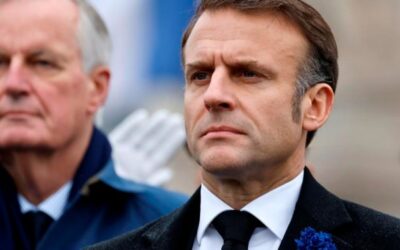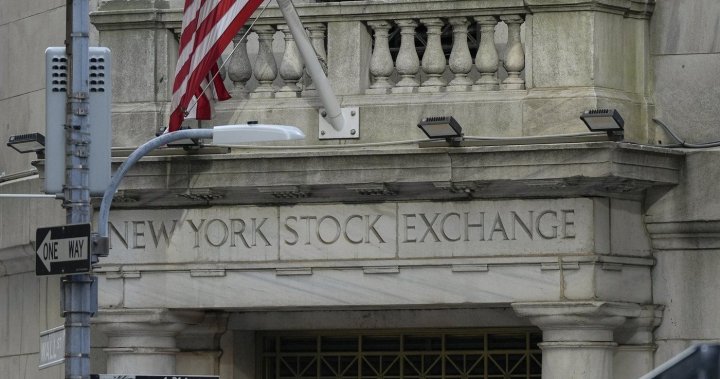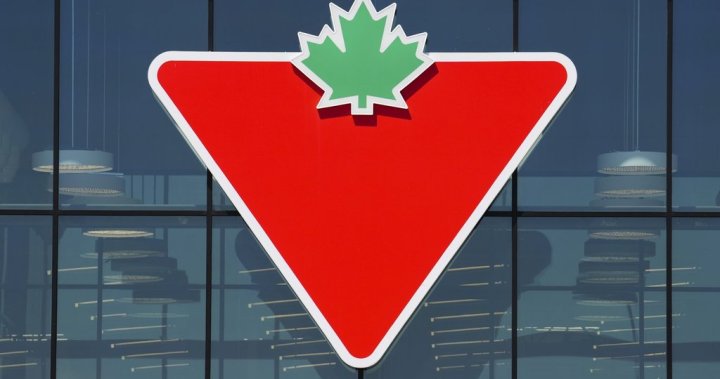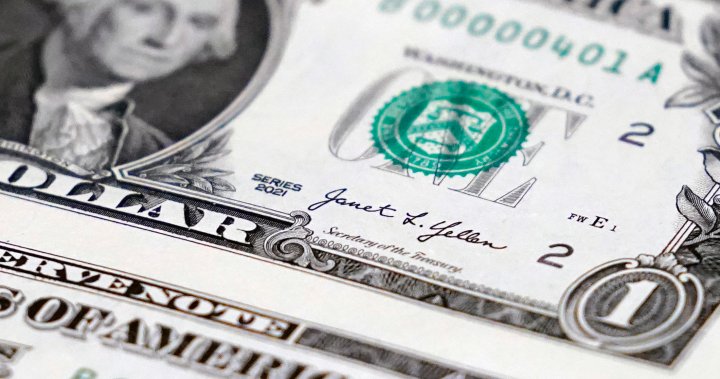‘Step up’: Freeland urges provinces to follow Ottawa on tax ‘holiday’ – National

The federal government is calling on the provinces to “step up” and drop their sales taxes on certain items in line with Ottawa’s proposed two-month relief period.
But Finance Minister Chrystia Freeland won’t confirm whether Ottawa will compensate the provinces with a harmonized sales tax who are set to see a shortfall in planned revenue under the proposed “tax holiday.”
Last week, Prime Minister Justin Trudeau announced plans to waive the GST and HST on a select number of items starting Dec. 14 in what he called a “break” for Canadians struggling with the higher cost of living.
In provinces with the harmonized sales tax, the federal government remits a portion of the proceeds to the provinces, rather than imposing a separate GST at the federal level and the PST in the provincial jurisdiction.
New Brunswick Premier Susan Holt told Information Morning Fredericton last week that the tax holiday was a “surprise” to her new Liberal government, given only a day’s notice before the announcement.
“We’re trying to figure out now what this means,” Holt said, estimating the announcement will work out to $62 million in lost revenue for New Brunswick.
Holt said she is looking to the federal government to cover the hole, and Prince Edward Island Premier Denis King has made similar statements. Newfoundland and Labrador Premier Andrew Furey has said he is on board with the federal government’s plan.

Freeland spoke to reporters on Monday and was asked whether the federal government is planning to compensate provinces with the HST, which includes Ontario and the Atlantic provinces, for the loss of revenue. She did not answer the question directly.

Get weekly money news
Get expert insights, Q&A on markets, housing, inflation, and personal finance information delivered to you every Saturday.
Instead, she spoke about the positive boost that the proposed “tax holiday” would have on consumers and small businesses who are currently struggling with high costs. She encouraged provinces to get on board with the Liberal proposal.
“Our hope is that as we talk more with premiers of provinces and territories, they will recognize that this is a good thing for the people who live in their province and that they will join us in offering this relief to their people,” Freeland said.
The deputy prime minister was later asked whether it was fair for some Canadians living in provinces with the HST to get a more sizable tax break than those living in other provinces where only the GST would be waived but provincial sales taxes still held.
“This is an opportunity for all premiers across the country to step up and to join the federal government in providing this relief for their citizens,” Freeland said.
Economists question cost of relief
In the spring, the Liberal government is also planning to send $250 cheques to some 18.7 million Canadians who were working in 2023 and earned less than $150,000.
Together, the relief package is estimated to cost roughly $6.3 billion, not including any potential compensation to provinces that have the HST.
The parliamentary budget officer said last month that it is unlikely the Liberal government met its fiscal targets of capping the deficit at $40 billion in the last fiscal year.
Randall Bartlett, the senior director of Canadian economics at Desjardins, said in a note to clients Monday that the additional $6.3 billion in spending from the proposed relief package will make it “extremely difficult for the federal government to stick to its fiscal anchors.”
“The economic soundness of these measures is questionable,” Bartlett said. “While many Canadians are struggling financially, these new measures lack the targeted approach of previous initiatives.”

Freeland on Monday confirmed that the Liberals are not planning to extend the tax holiday beyond mid-February, and emphasized the “temporary” nature of the measures.
She again touted that the national inflation rate has returned to the Bank of Canada’s two per cent target, allowing the central bank to cut interest rates, lowering the cost of borrowing and easing the pressure on Canadians.
But Freeland said Canadians aren’t feeling the relief yet as costs remain elevated. The Liberals’ proposed relief is about encouraging consumers to spend again during the two-month period in question, she said.
“It’s really important for Canadians to start feeling that confidence and to act on that confidence,” she said.
—With files from Global News’ Jillian Piper.
© 2024 Global News, a division of Corus Entertainment Inc.








